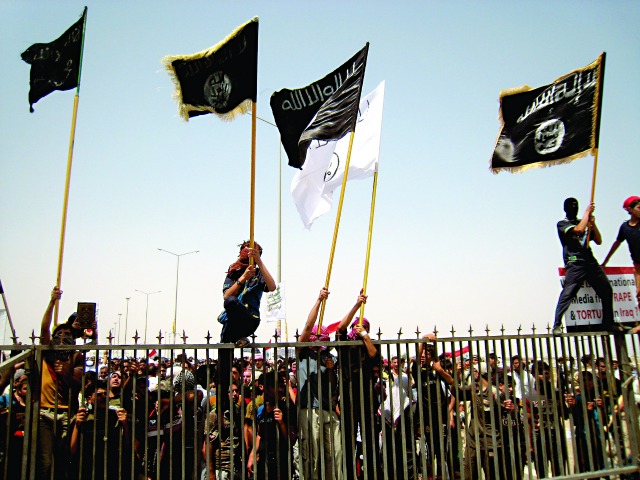Khorasan is al-Qaeda, and al-Qaeda is Khorasan. To date, nothing has been established to suggest a distinguishing difference in ideology between the two separately named entities.
Instead, experts suggest that Khorasan should be viewed as an elite unit, largely consisting of members from al-Qaeda’s “core” group, who are predominantly focused on plotting attacks against the West.
The Sunni terror group has reportedly been embedded into the AQ-affiliated Jabhat al Nusra, an Islamist militia that has sometimes temporarily aligned itself with the Islamic State to fight the Assad regime. What differentiates Nusra from Khorasan, however, is that the latter AQ subgroup is squarely determined to attack the West, while Nusra has a greater role to play in the ongoing Syrian civil war.
Khorasan has also gone as far as to reach out to the Shia opposition.
Khorasan is led by senior al-Qaeda operative Muhsin al-Fadhli, a man with a U.S.-sponsored $7 million dollar bounty on his head. Some have alleged that al-Fadhli played a role in soliciting Iran’s cooperation in al-Qaeda’s September 11, 2001, attacks against America. In 2013, an intelligence assessment stated that Khorasan leader al-Fadhli “now plays a key role in advancing plans for attacks by al-Qaeda from Syria, in accordance with Iran’s interests.”
Although President Obama specifically focused in on the Islamic State’s advances as grounds for military intervention in Syria, the Pentagon has indicated that a large sum of the strikes in the air and naval campaign in Syria have been targeted at the shadowy Khorasan group.
So why Khorasan? And why now?
Top officials within the Obama administration and the Pentagon established that targeting Khorasan was primarily due to the “imminent” threat posed by the al-Qaeda Sunni terror organization.
Last week, Director of National Intelligence James Clapper called this seemingly unknown group a threat that may “pose as much of a danger” as the Islamic State.
Army Lt. General William C. Mayville, Jr. told reporters at the Pentagon on Tuesday that Khorasan posed such an immediate and direct threat that the United States decided to target the group with the majority of Tomahawk cruise missiles fired at Syria.
Also on Tuesday, Pentagon spokesman Rear Admiral John Kirby told ABC that the group was “actively plotting for an attack on the U.S. homeland.” He said:
We had very good indications that this group, which is a very dangerous group, was plotting and planning imminent attacks against Western targets to include the U.S. homeland, and it was on that basis that we struck targets, Khorasan targets, inside Syria. …We believe that the individuals that were plotting and planning it have been eliminated and we’re going to continue … to assess the effectiveness of our strikes going through today.
Eric Holder reiterated the Pentagon’s stance on Tuesday, telling Yahoo’s Katie Couric that Khorasan was “close to an execution date” for launching attacks against the U.S.
Holder explained the operation: “We hit them last night out of a concern that they were getting close to an execution date of some of the plans that we have seen. And the hitting that we did last night, I think, will probably continue until we are at a stage where we think we have degraded their ability to get at our allies or to the homeland.”
Intelligence officials have told multiple media outlets that Khorasan’s plans likely involved attempting to hijack aircrafts in a Western country, utilizing advanced electronic devices to get past airport security checkpoints.
What Holder, Clapper, and other officials failed to explain was how Khorasan was able to become an “imminent threat,” even after revealing that the United States had been tracking the sophisticated terror cell for years.
A senior government official told Breitbart News he was shocked that such sensitive information about Khorasan had been announced to the general public, explaining the extreme sensitivity of the information regarding the terror group’s plans against the United States.
The official also wondered if there was a political element to Khorasan–whether this was a name the al-Qaeda group had given themselves or, rather, a name U.S. officials used to identify the group as an entity separate from al-Qaeda.

COMMENTS
Please let us know if you're having issues with commenting.